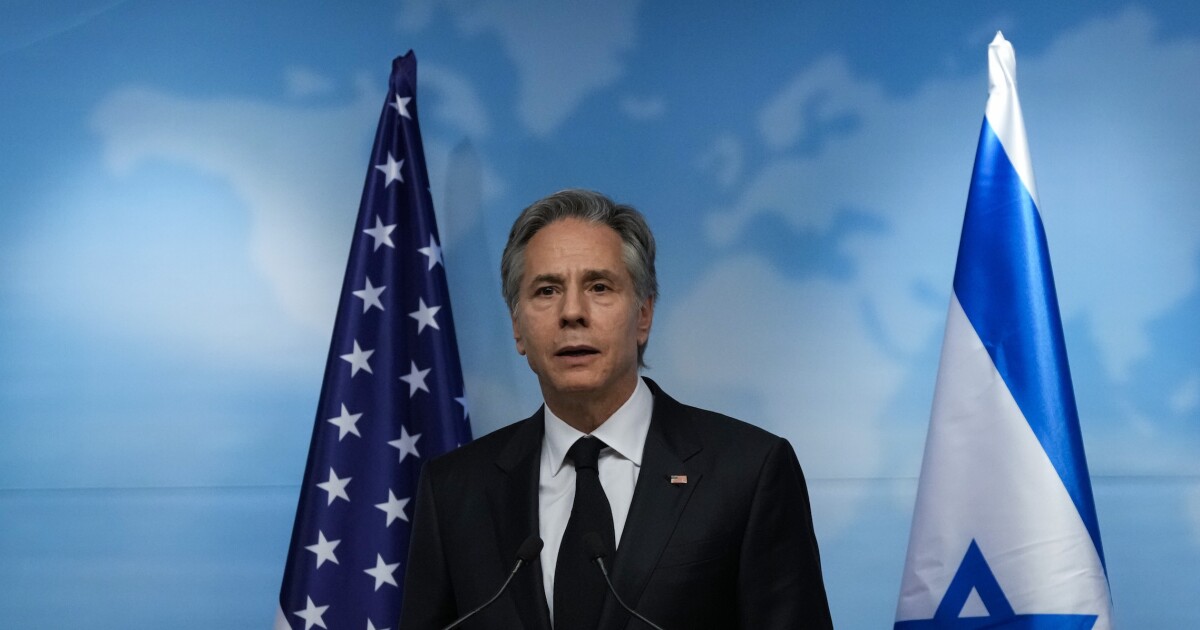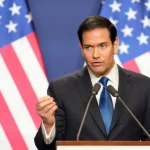

Secretary of State Antony Blinken brushed off an Israeli minister who protested his “lesson in democracy” as he visited Jerusalem amid an intense debate about Israeli Prime Minister Benjamin Netanyahu’s proposed judicial reform.
“What I talked about yesterday … reflects the shared values that the United States and Israel have had and held for more than 75 years, and it is nothing more and nothing less than that,” Blinken told reporters Tuesday. “I continue to be inspired by the vibrancy with which Israel shares those values, something that, again, we’re seeing right now, and I think I can say the same thing about my own country, the United States.”
NETANYAHU HINTS AT DISPLEASURE WITH RUSSIA’S MILITARY TIES TO IRAN
Blinken publicized his opposition — “speaking frankly and respectfully, as friends do,” he said — to Netanyahu’s plan to curtail the political powers of the Israeli judiciary following their meeting. That framing, mild-mannered as it was, nonetheless provoked a Netanyahu ally into a public rebuke of the visiting U.S. envoy.
“Dear Mr. Blinken, I understand that you decided to give our prime minister a lesson in democracy,” tweeted Israeli National Missions Minister Orit Strock, a member of the far-right Religious Zionist Party that helped secure Netanyahu’s return to power in the November elections. “Well, democracy is first of all the duty of a country to determine its course according to the votes of its citizens, each of which is given equal weight, without foreign involvement.”
Blinken preempted that rebuke in his public appearance with Netanyahu on Monday by characterizing the disagreement as a salutary discussion of best practices between democratic allies.
“Our fellow democracies can also make us stronger. That’s what the United States and Israel have done for each other over many decades, by holding ourselves to the mutual standards we’ve established,” Blinken said. “The discussion that the prime minister and I had today was no exception.”
Strock’s outburst broke with Netanyahu’s approach to the dialogue, as the Israeli leader adopted a collegial tone in his public response to Blinken’s message.
“We share common interests, which are growing by the day,” Netanyahu said. “We share common values; two strong democracies which will remain, I assure you, two strong democracies.”
The judicial reform has raised doubts about that prospect within the Israeli system, in part because it weakens the judiciary’s ability to strike down laws passed by the Knesset.
“The meaning of this plan is, therefore, to change the democratic identity of the country beyond recognition,” Israeli Supreme Court Chief Justice Esther Hayut said earlier this month, calling the plan “not a plan to fix the justice system but a plan to crush it.”
The proposal would allow Israel’s parliament to override court rulings in such reviews by a simple majority — meaning that the same lawmakers who pass a law could also stiff-arm the Supreme Court’s review.
“We are in the grips of a profound disagreement that is tearing our nation apart. This conflict worries me deeply, as it worries many across Israel and the [Jewish] Diaspora,” Israeli President Isaac Herzog said earlier this month. “I am now focused on … two critical roles that I believe I bear as president at this hour: averting a historic constitutional crisis and stopping the continued rift within our nation.”
CLICK HERE TO READ MORE FROM THE WASHINGTON EXAMINER
Blinken saluted the “clarity of [Herzog’s] voice when it comes to finding a good way forward that builds consensus on the question of judicial reform” in a separate meeting with the Israeli president.
“As you said correctly, this is an issue that requires a wide consensus and it is an issue that many democracies debate on,” Herzog told Blinken. “I am very proud of Israelis for dealing with this debate from here and from there, while expressing their opinions … but at the end of it all, we have to resolve our issues amicably internally as societies and nations should do, and this is my main focus these very days.”






